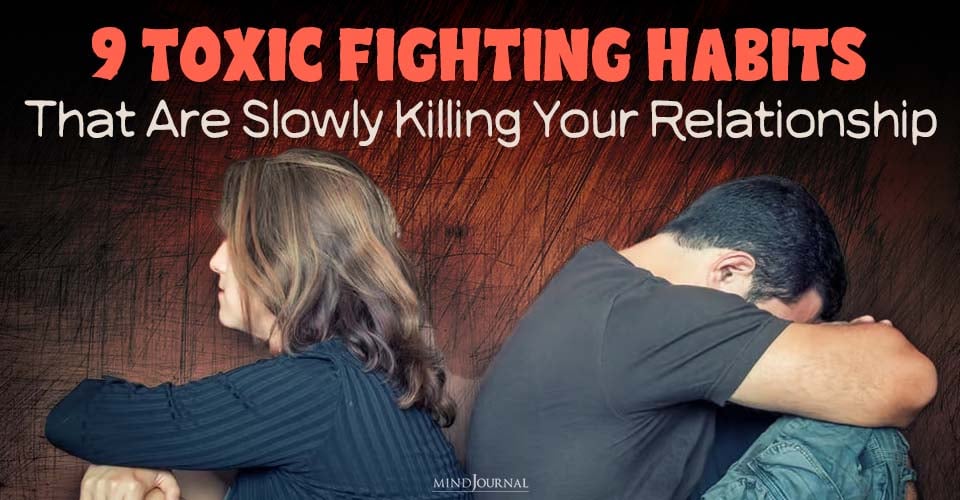A narcissist may seem emotionally intelligent and vulnerable at times, but it’s only because they want the spotlight on themselves. Another reason why they may seem emotionally intelligent is that they plan on playing the victim to control others and make them do their bidding.
Key Points –
A partner who opens up only to inflict guilt may be manipulative.
A person who utilizes a past trauma to justify a wrongdoing in the present may be Machiavellian.
An individual who broadcasts a past hardship only to re-route attention to herself may be narcissistic.
Why A Narcissist May Seem Emotionally Intelligent
A narcissist’s presentation is deceiving. Initially charming and fun, he is often well-received and displays capabilities that seem like emotional intelligence. Yet, distinguishing these tendencies from true emotional availability may shed light on Machiavellian tactics.
A person with narcissistic tendencies may seem vulnerable due to an ability to open up about past hardships. Yet, three factors may qualify this as manipulation versus vulnerability. First, the person uses a personal hardship to inflict guilt. Second, he excuses himself from accountability in the present by utilizing a trauma from the past. Third, the person redirects attention to himself by broadcasting a personal struggle.
These tactics allow a narcissistic individual the opportunity to play the victim in order to control and dominate others.
Related: How Narcissists Fake Empathy To Manipulate You And Your Emotions
For example, Lisa’s partner recently broke up with her. At lunch with her daughter, Lisa laments about her difficulty living alone when Ann is at college. Ann feels guilt for wishing to return to school and wonders if she should stay home.
Lisa continues to make comments about her profound loneliness and sadness due to the separation from her partner and Ann’s return to college. Ann fears she is selfish for choosing to attend a distant college and, although she adores her school, decides to remain at home and enroll in a community college to prevent her mom from feeling sad.
Alternatively, Lisa opens up about the sadness she feels regarding the dissolution of her romantic relationship. Ann listens supportively. Lisa wonders if her constant need to be in a relationship is a possible flaw and tells Ann she is thinking about counseling. Ann encourages her mother and is relieved and reassured that Lisa is eliciting support.
In the first depiction, Lisa believes she is the victim and entitled to control her daughter in place of taking responsibility for her own issue. Conversely, the second scenario demonstrates Lisa’s display of vulnerability. She opens up about the emotional pain she feels and accepts her daughter’s support.
Taking responsibility for her plight, Lisa looks inward and uses the difficult experience to gain insight. Instead of attempting to influence a loved one, she accesses support and comfort while engaging in activities that help her evolve.
Opening up about past trauma may also be considered “playing the victim” if the individual uses the incident to escape accountability in the present. For example, Charlie is in a committed relationship with Rick but has an affair with a colleague. Rick is informed about Charlie’s alternate relationship from a mutual friend. When Charlie is confronted, he cries and says he feels he hasn’t received enough attention in the relationship.
He adds that he has suffered trauma in past relationships due to ex-partners who abandoned him. Charlie labels himself “jaded.” Rick is puzzled. Although he recalls being extremely attentive and present in the relationship with Charlie, he begins to doubt himself. He accepts Charlie’s assertion that Charlie has been wronged and therefore entitled to cheat. Rick makes a concerted effort to dote on Charlie in the following months, yet discovers Charlie is continuing to see people outside of the relationship.
Related: How to Deal with a “Kind” Narcissist
In this instance, Charlie uses past difficulties as an excuse to justify wrongdoing in the present. Instead of maintaining an open and honest dialogue with Rick about feeling invisible, he hurts Rick. He also avoids accountability when he is caught by partially blaming Rick and citing an injury from his past.
Charlie positions himself as the victim and justifies his betrayal by deflecting accountability and pointing the finger at Rick.
On the other hand, Charlie admits he made a mistake and apologizes. He owns his selfish behavior and conveys empathy as he articulates an understanding of how his actions devastated Rick. They have multiple discussions about the incident and Charlie continues to take full responsibility for his betrayal.

Following serious introspection, Charlie decides to address several experiences in childhood when he witnessed his father cheating on his mother. He works hard on himself and is able to avoid repeating the mistake.
A person who advertises adversity from the past in order to re-direct attention onto himself may also be manipulating. Vulnerability requires a person to open up about uncomfortable emotions that are difficult and deeply personal.
Outside of activism or group therapy, an attempt to safeguard the information by solely talking to one or two trusted confidants is typical. A person who broadcasts a prior tribulation only to attract attention may be playing the victim. This may be especially true if the disclosure occurs when someone else is the center of attention. By sensationalizing and publicizing a trauma, the person “steals the spotlight.”
For example, at lunch Jane, who is recently divorced, receives support from her friends. They ask how she is doing. Jane opens up about her struggles and her friends listen intently. Sally, a friend who often dominates and controls the group’s conversations, grows impatient and indignant. She wishes to be the focus of the group.
Suddenly, she blurts out, “My mom may have cancer.” The women turn to her and shower her with support and attention. Sally enjoys the spotlight and spills every detail of her mother’s possible diagnosis. In this situation, Sally capitalizes on her and her mother’s struggle in order to re-direct the attention onto herself. She monopolizes the group’s dialogue and remains the focal point for the remainder of the lunch.
Related: 3 Sneaky Techniques Narcissists Use to Gain Attention
Authentic vulnerability involves disclosing uncomfortable and difficult emotions which are painful to admit. It often involves accountability, empathy for others, and self-awareness. It also allows a loved one to understand and validate a tender spot in someone’s soul. This creates closeness, trust, and intimacy.
A partner who illuminates a past trauma to inflict guilt, excuse a hurtful act, or re-route attention to himself may be narcissistic and less able to be truly vulnerable.
References:
https://www.ncbi.nlm.nih.gov/pmc/articles/PMC4873099/
Written By Erin Leonard Originally Appeared On Psychology Today
The next time you come across an emotionally intelligent narcissist or try to deal with one, keep these pointers in mind. Emotionally intelligent narcissists are still narcissists after all and chances are they will use their past trauma to justify their toxic behavior in the present.









Leave a Reply